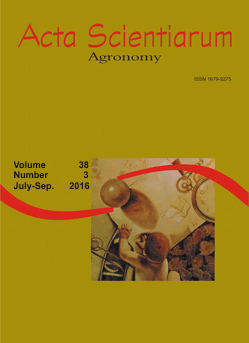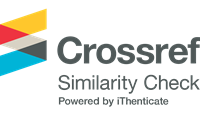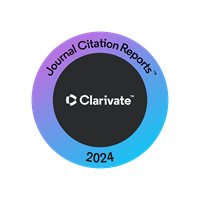Importance of agronomic traits in the individual selection process in sugarcane determined using the logistic regression
Abstract
The aim of this study was to evaluate the relative importance of agronomic traits during the individual selection in sugarcane (Saccharum spp.), as well as evaluate the potential for using logistic regression and decision trees in identifying the best genotypes. A total of 7,719 seedlings of 128 half-sib families were evaluated in the first test phase (T1) and 659 clones were selected for the second (T2). Logistic regression was applied in both populations (T1 and T2). The number of stalks, bud prominence and length of the internode were the most important traits in selection the T1. Plant vigour, stalk diameter and stalk height were the most important traits in selection the T2. There were 174 individuals selected by the mass selection method in T1 and 113 individuals in T2, while logistic regression selected 153 individuals in T1 and 79 in T2. The apparent error rates of the logistic models fitted to the selections in T1 and T2 were 0.8 and 5.10%, respectively. By using a decision tree, 67 clones were selected among the most productive ones in phase T2. The formulation of decision trees is therefore highly applicable to identifying potential clones in the initial phases of genetic breeding programs.
Downloads
DECLARATION OF ORIGINALITY AND COPYRIGHTS
I Declare that current article is original and has not been submitted for publication, in part or in whole, to any other national or international journal.
The copyrights belong exclusively to the authors. Published content is licensed under Creative Commons Attribution 4.0 (CC BY 4.0) guidelines, which allows sharing (copy and distribution of the material in any medium or format) and adaptation (remix, transform, and build upon the material) for any purpose, even commercially, under the terms of attribution.





















































